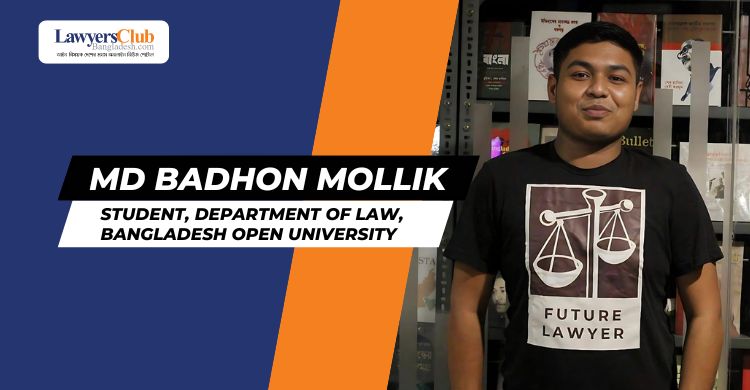Judiciary in Bangladesh: Useful Toys of the Hasina Regime

Allegations of unlawful or controversial actions by the judiciary under Sheikh Hasina’s regime in Bangladesh has been a topic of intense debate. Critics argue that the judiciary, which should be an independent pillar of democracy, has been compromised and used to further political interests. Some of the key areas of concern include:
1. Politicization of the Judiciary
Critics claim that the Hasina government has influenced judicial appointments to ensure that judges loyal to the ruling party are in key positions. This has raised concerns about the lack of impartiality in court rulings, particularly in cases involving opposition leaders, activists, and journalists.
2. Targeting Opposition Leaders
Several high-profile cases involving opposition leaders, particularly from the Bangladesh Nationalist Party (BNP) and its allies, have drawn attention. Notable figures like Khaleda Zia, former Prime Minister and BNP leader, were convicted in corruption cases. The timing and handling of these cases have raised questions about whether the judiciary is being used to weaken political rivals. Critics claim these convictions were politically motivated to sideline the opposition.
3. Use of the Digital Security Act (DSA)
The Digital Security Act, passed in 2018, has been widely condemned for its broad and vague provisions that criminalize dissent, free speech, and criticism of the government. While this act is a legislative measure, the judiciary has faced criticism for upholding prosecutions under the DSA, often without ensuring due process or protecting the rights of the accused. Journalists, academics, and activists have been targeted under this law, leading to a chilling effect on free speech in Bangladesh.
4. Contempt of Court Cases
There have been instances where individuals, including journalists and politicians, were charged with contempt of court for criticizing the judiciary or questioning judicial decisions. This has been viewed as an effort to silence dissent and suppress freedom of expression, as criticism of the judiciary is often seen as a legitimate aspect of democratic discourse.
5. Delay in Justice
Delays in high-profile cases, particularly involving political figures, have been another point of contention. The slow progress of trials, particularly those where opposition leaders are involved, leads to suspicions that legal procedures are being deliberately drawn out for political gain.
6. Removal of the Chief Justice
The removal of Chief Justice Surendra Kumar Sinha in 2017 was a significant event that raised serious concerns about judicial independence. Justice Sinha left the country amid controversy after issuing a verdict that nullified a constitutional amendment giving the government greater control over judicial appointments.
His subsequent resignation, under alleged pressure, was seen as a direct attack on judicial independence. Sinha later accused the Hasina government of corruption and interference in judicial matters in his memoir, further intensifying the controversy.
Surendra Kumar Sinha was appointed as the Chief Justice of Bangladesh in January 2015.
In 2017, Sinha’s court issued a landmark verdict that nullified a constitutional amendment giving the government greater control over judicial appointments. This decision was seen as a significant pushback against potential political influence over the judicial.
In October 2017, Chief Justice Sinha left the country amid controversy and subsequently resigned from his position. He cited health reasons for his departure.
Sinha alleged that his resignation was under significant pressure from the government. He claimed that his decision to nullify the constitutional amendment had angered the ruling party, leading to undue pressure and threats. But the government denied any involvement in Sinha’s resignation. Officials stated that his departure was voluntary and attributed to personal and health reasons.
7. Election-Related Judicial Actions
The judiciary has been criticized for failing to properly address allegations of electoral fraud and irregularities, particularly in the 2018 general elections. Opposition parties and international observers raised concerns about voter suppression, ballot-stuffing, and intimidation, yet the judiciary did not take significant action to investigate these claims.
While these allegations point to a troubling erosion of judicial independence, supporters of the government argue that the judiciary has been actively addressing corruption and ensuring law and order. The judiciary in Bangladesh, under the Hasina regime, has been a focal point of contention and controversy.
Accusations that the judiciary has been manipulated as a “useful toy” for political purposes highlight concerns about the erosion of judicial independence and the fair application of justice.
Allegations of biased judicial appointments, politically motivated cases, and the suppression of dissent suggest a troubling trend where the judiciary is perceived as a tool for consolidating political power rather than upholding democratic principles.
As the country grapples with these issues, the need for a truly independent judiciary becomes ever more critical to ensure the protection of democratic norms and the rule of law. The ongoing debate reflects broader concerns about the state of democracy in Bangladesh and the role of judicial institutions in maintaining political impartiality.
Author Md Badhon Mollik is a Student, Department of Law, Bangladesh Open University.

